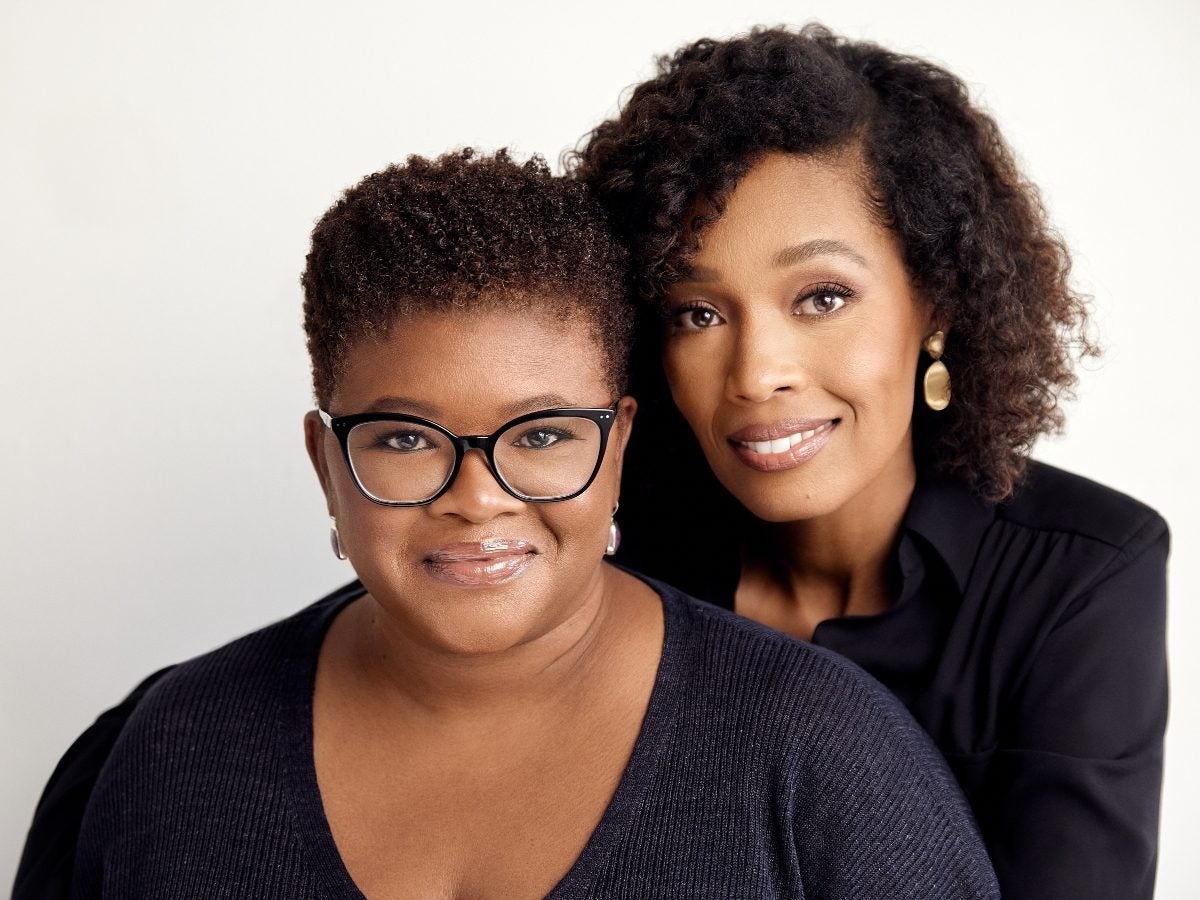
In 2019, Tembi Locke published The New York Times bestseller From Scratch: A Memoir of Love, Sicily, and Finding Home. The book told a story of many loves — food, culture, art, travel — and, most significantly, the romantic kind she once shared with her husband.
Urged by her fellow New York Times Bestselling Author sister Attica Locke to write the memoir, the siblings have now partnered to bring the story from the pages to the streaming world with the eight-part TV series adaptation of the book, From Scratch, debuting on Netflix today.
Tembi and Attica talked to ESSENCE about the emotional process of sharing their real life story of love and loss with the world; why the casting of Zoe Saldaña and Danielle Deadwyler in the lead roles was just right; and what they hope audiences will take away about living at the end of the series.
Were you nervous at all about giving your memoir and your life story the Hollywood treatment?
TEMBI LOCKE (TL): We began the path, and I say we meaning Attica and I, knowing that if we were to embark on doing this together, that we had to bring all of who we were and that it had to maintain the emotional truth of the book, otherwise why do it? There was no grand reason to do this story if you weren’t going to go there.
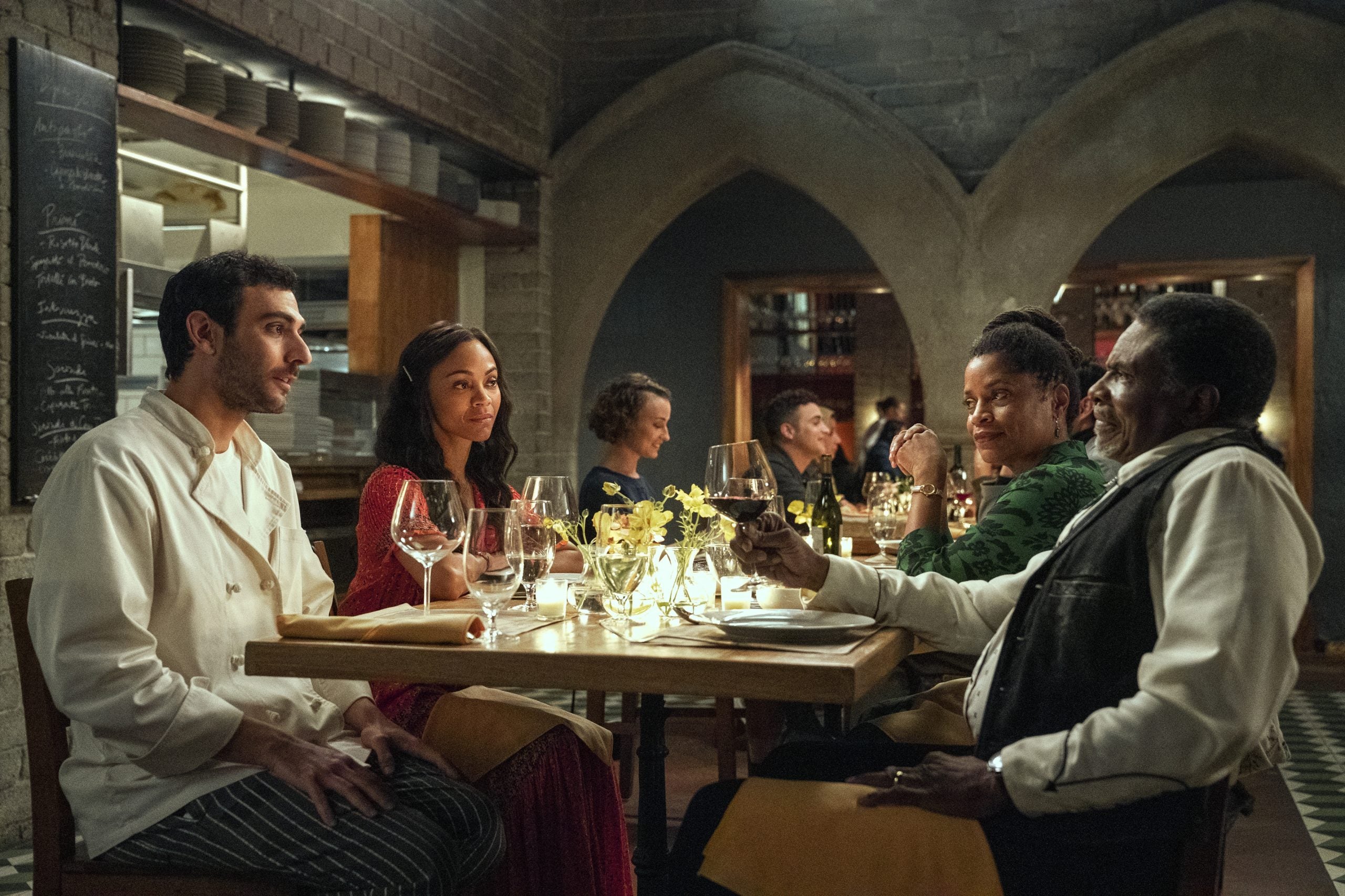
I knew in having Attica as a partner, first of all she’s my sister, so I know her heart. And I know she’s got my back. I know we have a similar sensibility. We think alike. We approach stories sometimes differently but always with some core values around what a story needs to have. So I knew I had a great partner in her to do this adaptation. And then we just really set forth to say what are the emotional pillars and what are the key story points that are non-negotiables? We decided that for ourselves, just between the two of us, so that when we went forward to talk with our producing partners, to talk with our studio, to talk with our later on producing director, we always had that core value system, the tenants that we had set forth. And I think that really helped us.
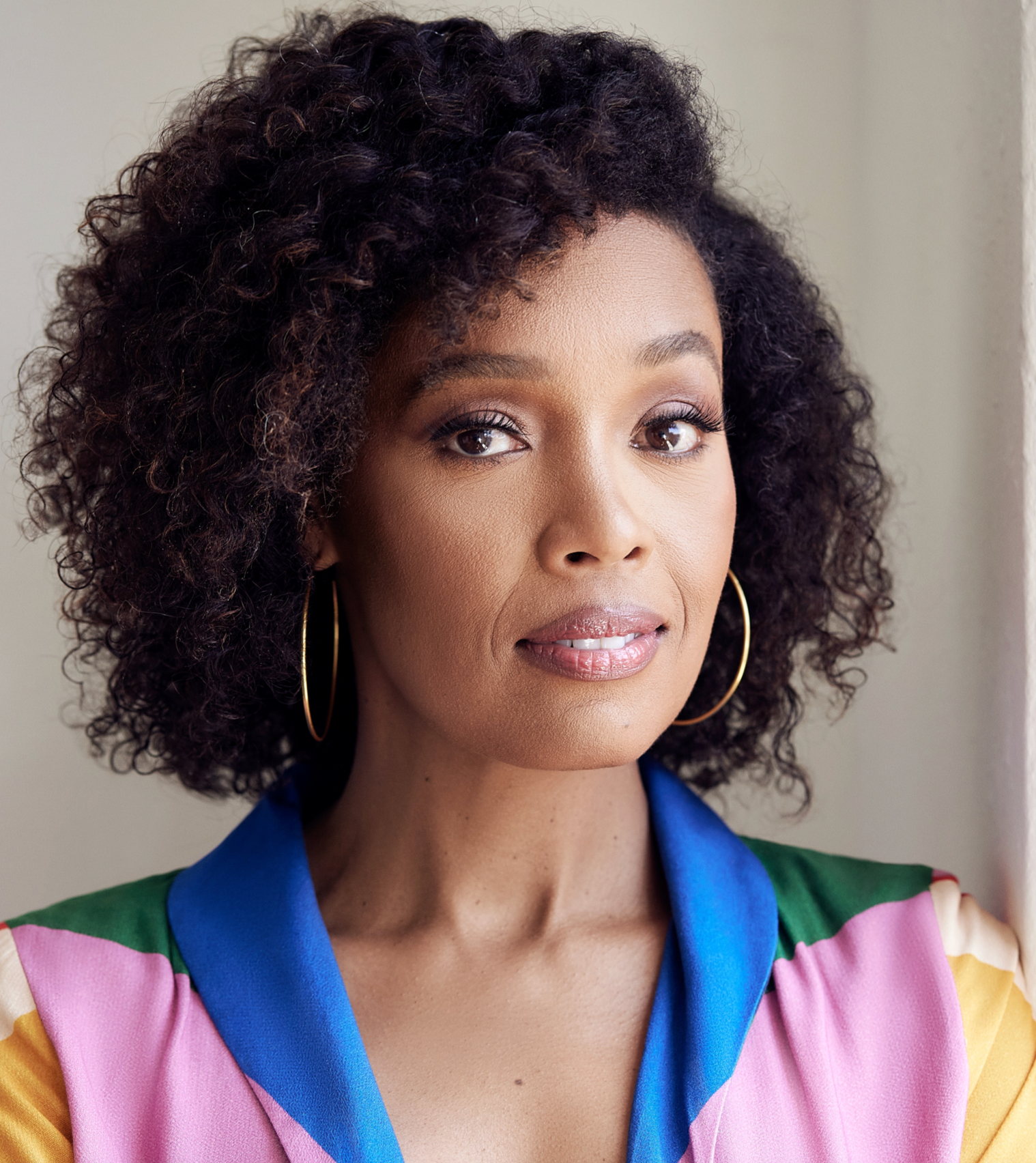
Can you take me back to when you decided to write the memoir and what that process was like for you?
TL: If I’m being very vulnerable and honest about it, as I approached the fifth anniversary of Saro’s passing, my late husband’s passing, I felt that it became very clear that there was going to be more time ahead of me without him. And I felt a burning desire within to capture what had been, not just for myself but for our daughter. I also, at the fifth anniversary, with five years of loss under my belt, I felt well and strong enough to begin to look at my life as a storyteller and ask what did I have to offer, what had I learned?
Attica was really an impetus for me writing the book because she had been telling me for a couple years, “You need to write this story.” I joke lovingly when I say, it wasn’t like, “You need to write this book. It would be really good if you wrote this book, it’d be so nice.” She was like, “You need to write this book and if you don’t, I’m not talking to you.” So to hear a writer, forget that she was my sister, but just a writer tell me, a non-writer, “You can do this.” It gave me the confidence to write the book. And my hope for writing the story was that it would work in two ways: that I would get some healing out of it and that whoever read it might also get some healing.
ATTICA LOCKE (AL): Let me add into this. Yes, I’m a writer but I’m also a big reader and I wanted to read that book. So, selfishly, I wanted her to write it so I could read that book. I don’t think I ever thought of you as not a writer because I knew you could write a book I wanted to read. I just thought it was one of the most extraordinary stories that I had ever had the privilege of witnessing, the love part of it, the culture part of it, the food part of it, the humor in it, the big themes about cross-cultural love, both romantic and otherwise, and all these things. I just thought I’d never seen anything like it and I thought it should exist in the world.
What was like for you emotionally as you watched your story being brought to life on set?
TL: I’ll kick it off by simply saying every day was a kind of lean in to the full depth and breadth of all of it. I literally would start my day sometimes in prayer, in meditation because I knew what was ahead of us. What it would ask of us as professionals, but what it would also ask of us as individuals and as sisters. Some days were definitely harder than others and we had a code and a contract between the two of us that if it was a day that I could see coming down the pike, this is going to trigger me, there is a lot happening in today’s work that’s going to be too much, I might step away for half the day or the whole day and just check in or be available on the back phone if needed and the same thing for Attica. If she needed to step away, we could trade off so that was helpful.
When the emotion would come up—I knew in signing on to do this, that I was signing onto a reliving and a reopening –I would just allow that to be and also acknowledge that I wasn’t doing it alone, I’m doing it with my sister and I’m doing with all the beautiful creative souls and artists who are here to take one person’s story and lift it into everybody’s story.
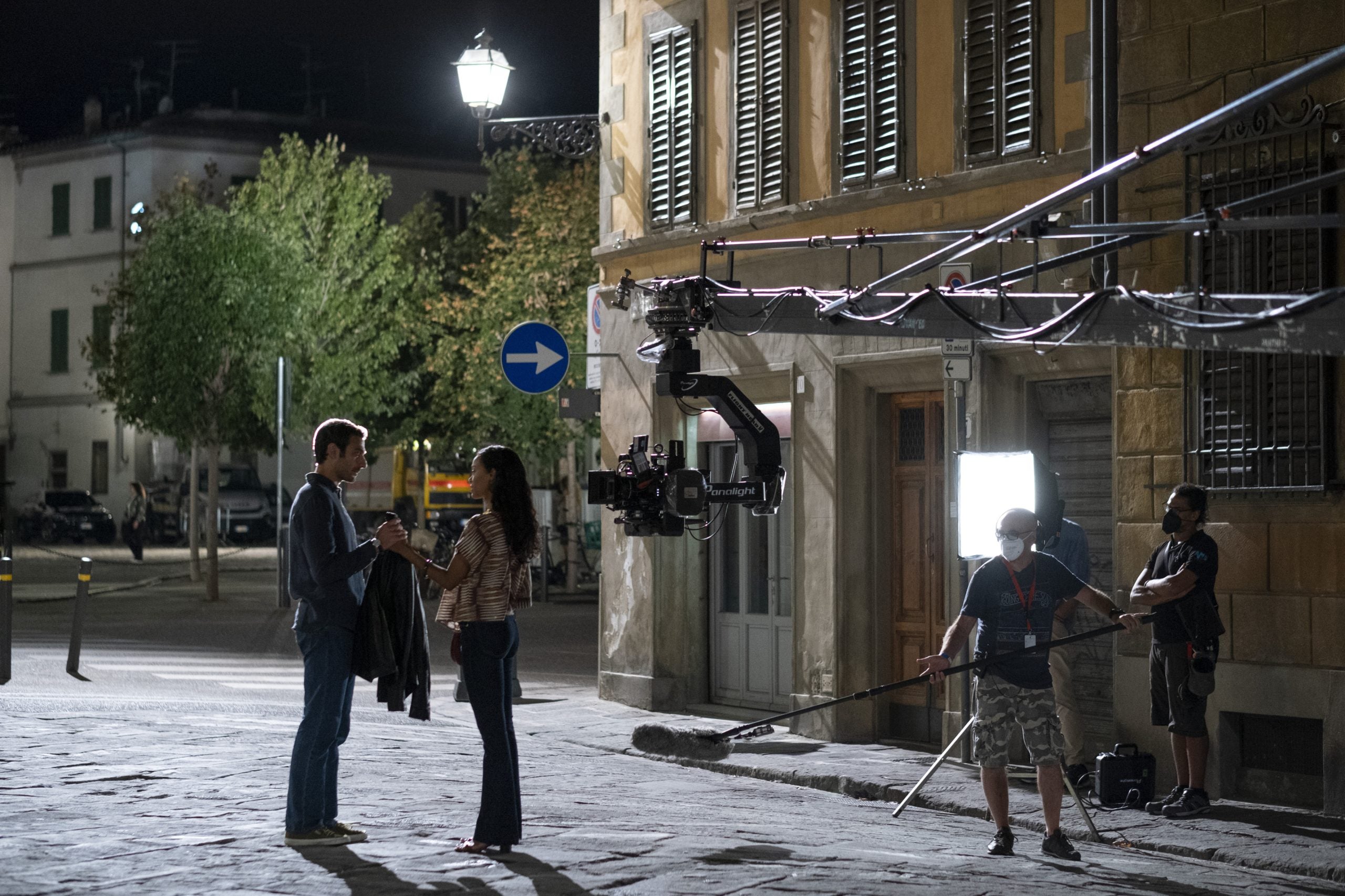
AL: There were a lot of moments that were very surreal that just felt like, how did we pull this off? How does this person remind me so much of my brother-in-law? How does this scene feel so real? And from that surreality, it could go two ways. One, it would overwhelm you and you would get emotional, you’d have a surge of grief and tears. The other path would be, oh my God, I’m so glad we’re getting this down. I’m so glad we pulled this off. I’m so glad that this story’s going to be told. So I felt both. It was never not surreal but sometimes that surrealness was grace and just so much joy and then sometimes it felt like pain.
I want to get into casting a little bit because it’s funny as I talk to you, I totally see why Zoe Saldaña and Danielle Deadwyler were chosen to play each of you. But what was it about them that let you know they were the right actresses to portray you?
TL: With Zoe, first of all, there were the obvious synchronicities, which is fact one, just straight out the gate, she’s married to an Italian man. Who is an artist.
AL: And she speaks Italian.
TL: And she’s a mom. And she works with her sisters. Her sisters are her producing partners. And then the last thing is that she comes to the table with an understanding of childhood grief. So those things alone, I was like, did someone make this up? How did this happen? When we were approached with Zoe, it was like, okay, this feels synchronous and when we met her, it further cemented the fact that this felt like the definite choice and way to go.
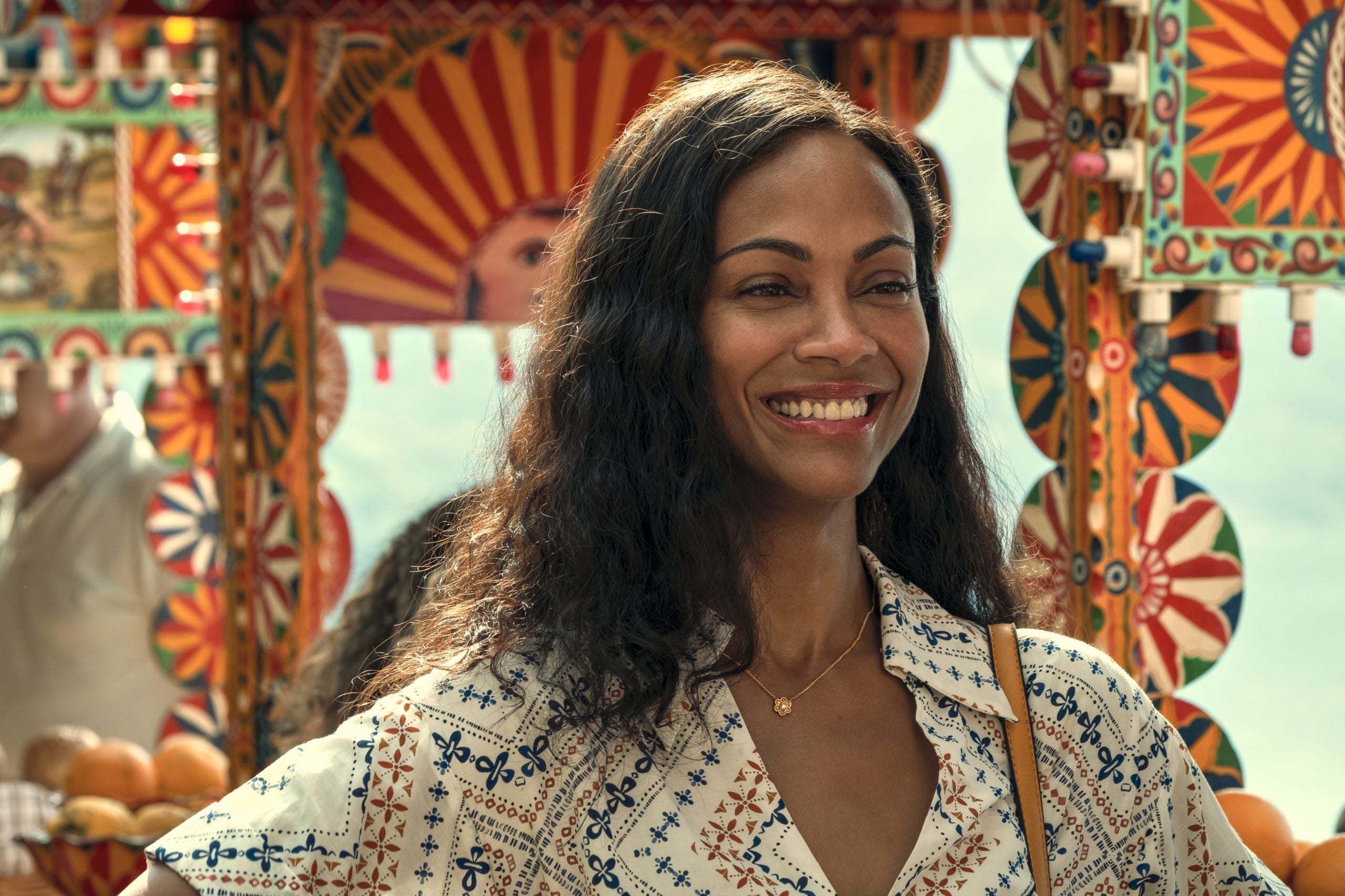
AL: She has this kind of balance of tenderness and strength that is the character and it kind of vibrates off of her. And so in meeting her and talking with her, everything Tembi said, it felt like a complete fit.
Danielle came to us through, I think it was our first set of audition tapes for Zora. And I knew, Tembi knew, and Nzingha Stewart, our director, knew. We had to wait for some other people to know too. But I’ll leave it at that. What I love about Danielle is that she has the right sense of humor. She seems very strong. And she did the scene, you need to wash your ass scene in the audition, and I was crying and laughing. And that’s very hard to do. It is very hard to drop into that very intense scene. I don’t know what you’re going through. I don’t know how to help you, I’m broken with you, but girl, you need to wash your ass. And we were like that’s it. That’s her. That’s her. And we were graced that she chose to work with us because she’s now gone on to do so many things.
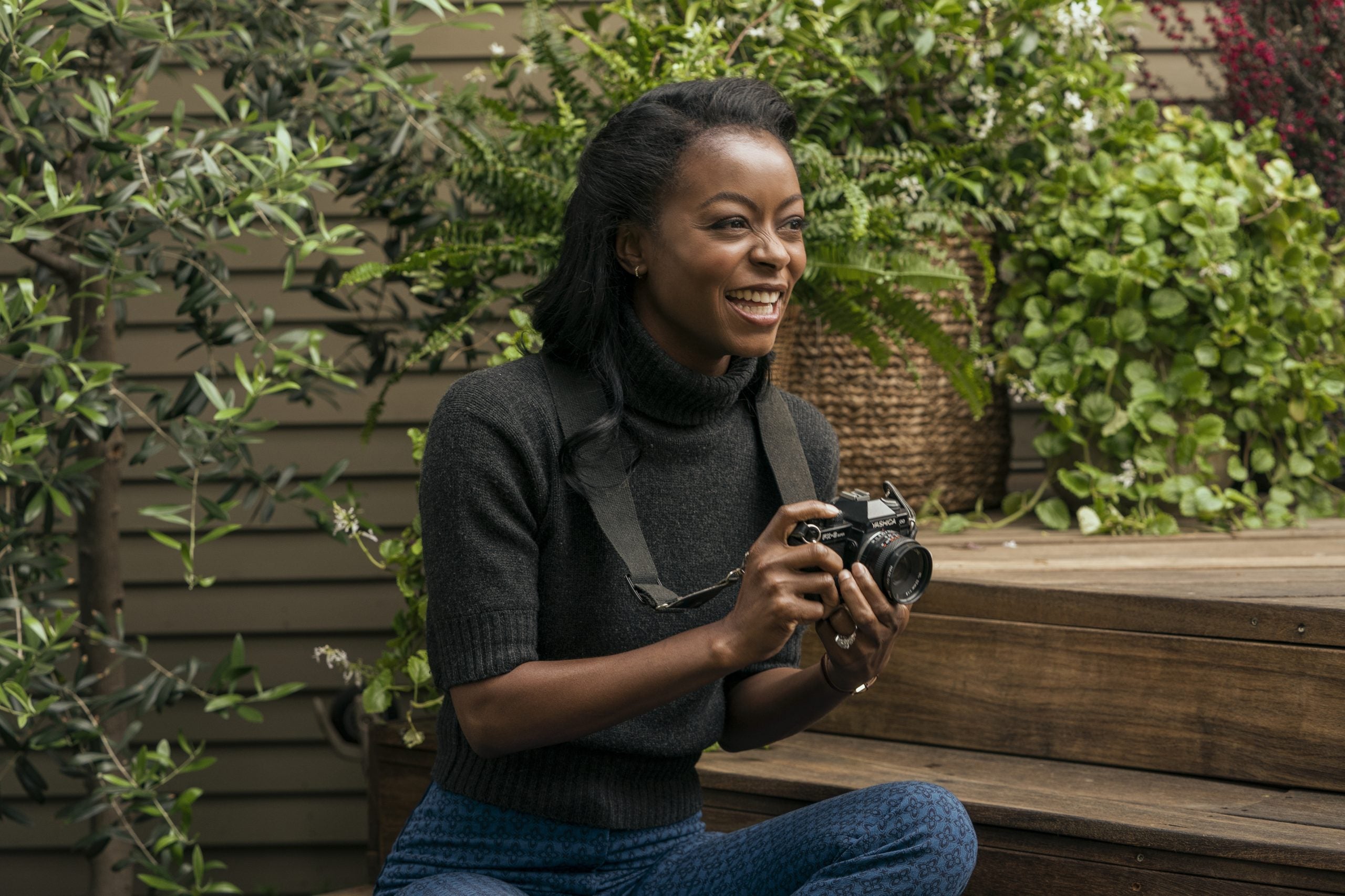
And then for Eugenio Mastrandrea, what was it about him that perfectly captured Saro’s spirit?
TL: Attica, you want to tell the story?
AL: Yeah, I’ll tell the story, because he also came in in our first batch of tapes for Lino. And when he—I’m going to act out how he bumped that person on the street – did that thing and he turned to the camera I… I had to walk away. I went and stepped into the other room and I started weeping. My husband heard me and came down. My daughter heard me and came in. They both held me because I was weeping because I was like, that’s him. It was instant. So I actually called Tembi because I knew she was going to watch these tapes later and possibly with her child, my niece. So I said, “Okay, I want you to prepare yourself, there’s somebody in those tapes that may stir some stuff up because there is a kind of quality of Saro’s spirit that exists within this person.”
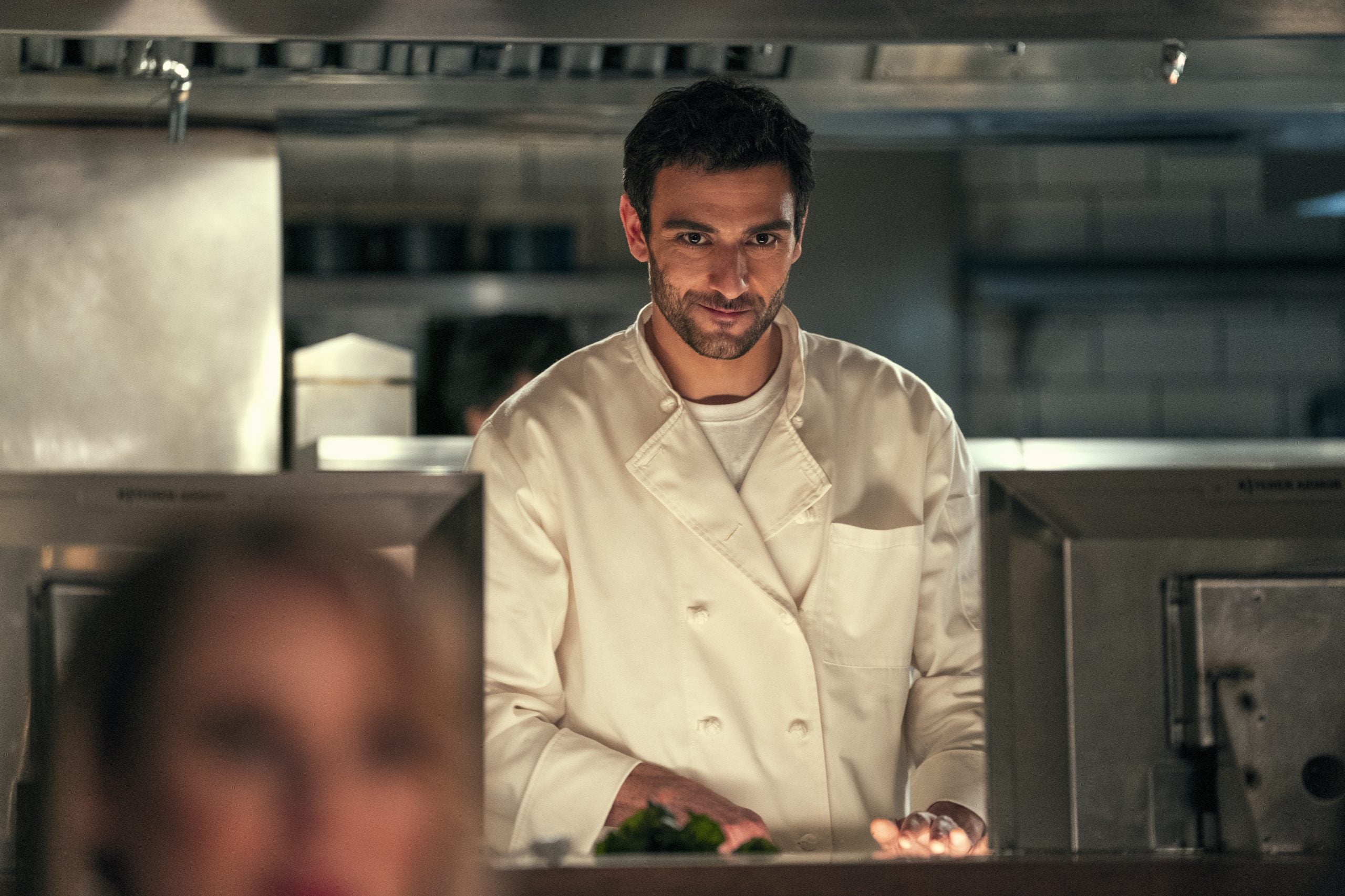
TL: I was like, “Okay.” And I had a very visceral reaction the minute I saw the screen and I thought, I need to go sit with myself for a minute because what is happening? And then I also was very clear that I wanted to watch his tape many, many, many times mostly because what I wanted to do was to make sure that I wasn’t reacting from an emotional place as the widow. I knew that this actor had to carry our series and I knew he had to have the chops. My daughter was a part of the process and one of those ways was to watch some tapes, so I wanted her input. And when she saw it, she was like, “It’s him.”
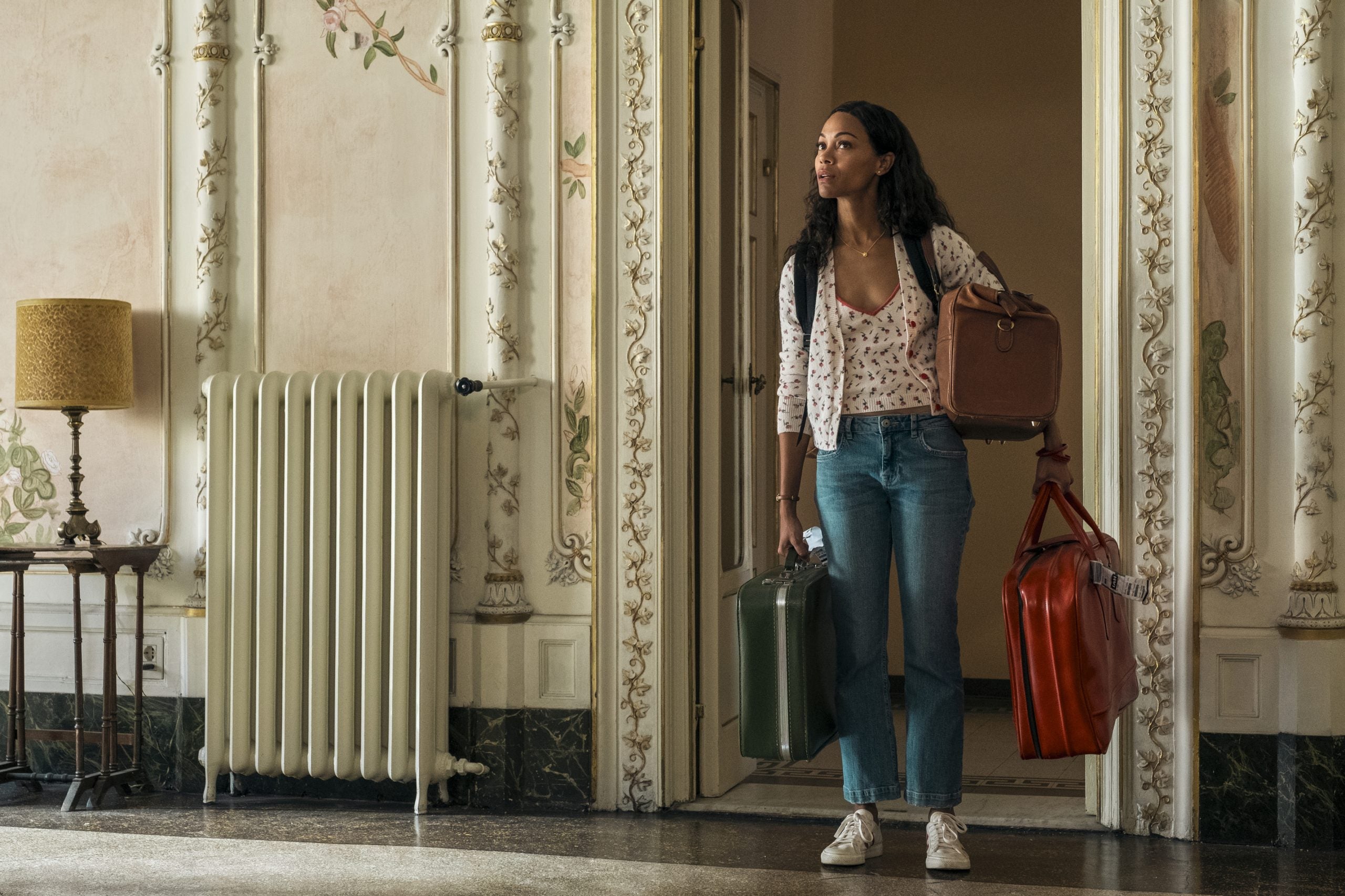
In the beginning of the series when Amy gets to Florence she says, “I came here to have my own renaissance.” Can you imagine what your life would’ve been like if you never went against your father’s wishes and went to Italy?
TL: No. I’m going to tell you something. After Saro passed away, a couple of years later, I was at brunch with some family members and they were like, “Oh yeah, when you got with him, we just didn’t know what that was about, why that was happening? He was a cook.” And then they said, “But now, we see. There was something really beautiful there.” And then, the person said, “And I hope for my daughter, I want her to have a good job, but I hope for my daughter that she would find something like that.”
It was like a slew of doctors and they couldn’t understand why in the hell [we were together.] But now, he had been gone for two years and they suddenly were like, “Oh, we can see it.” And so to your point, I don’t know what my life would’ve been like but it would’ve been, and I can say this beyond a shadow of a doubt, it would’ve been a lesser life.
AL: You know what? It would’ve been a lesser life for you. It would’ve been a lesser life for our parents. It would’ve been a lesser life for me. All of our lives were expanded by that relationship and that marriage and same for his family. It was literally fate, two lightning bolts hitting each other. Whatever that reverberated out, that really changed the course of all of our lives. My life is different. I know how to make pesto because of Saro.
TL: You’re crazy. (laughs)
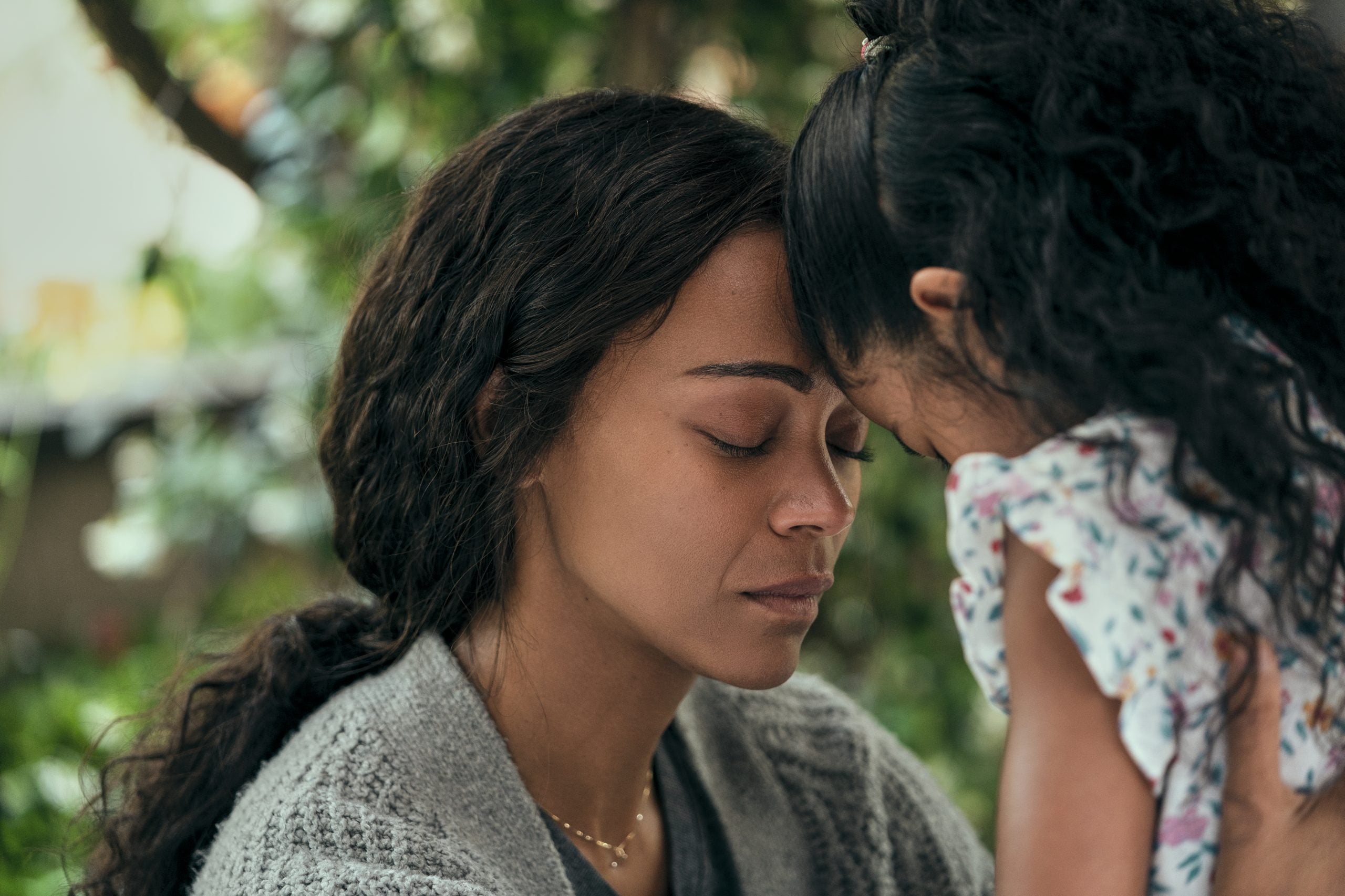
What are each of you hoping audiences will be left with at the end of From Scratch?
AL: I always like to say the thing that I admire most about my sister and admired most about my brother-in-law and beyond admired about the two of them together in a relationship, is that they made a sole choice in life to live, really live until the very second that you don’t anymore. And their ability to have a full life through the burden of cancer and caregiving was aspirational, and instructive.
We have the scene of Amy in the hospital with the little candles and they’re not the real, you can’t really light a real candle. But Tembi would do that, she would bring in flowers and candle lights. So just create beauty. Make your lives as full and pretty and rich and loving as possible. That’s what I hope for people. And I hope that people understand we don’t all have a ton of time, so grab it, grab it hard. Go tell your people that you love them, don’t ever miss a chance to do that.
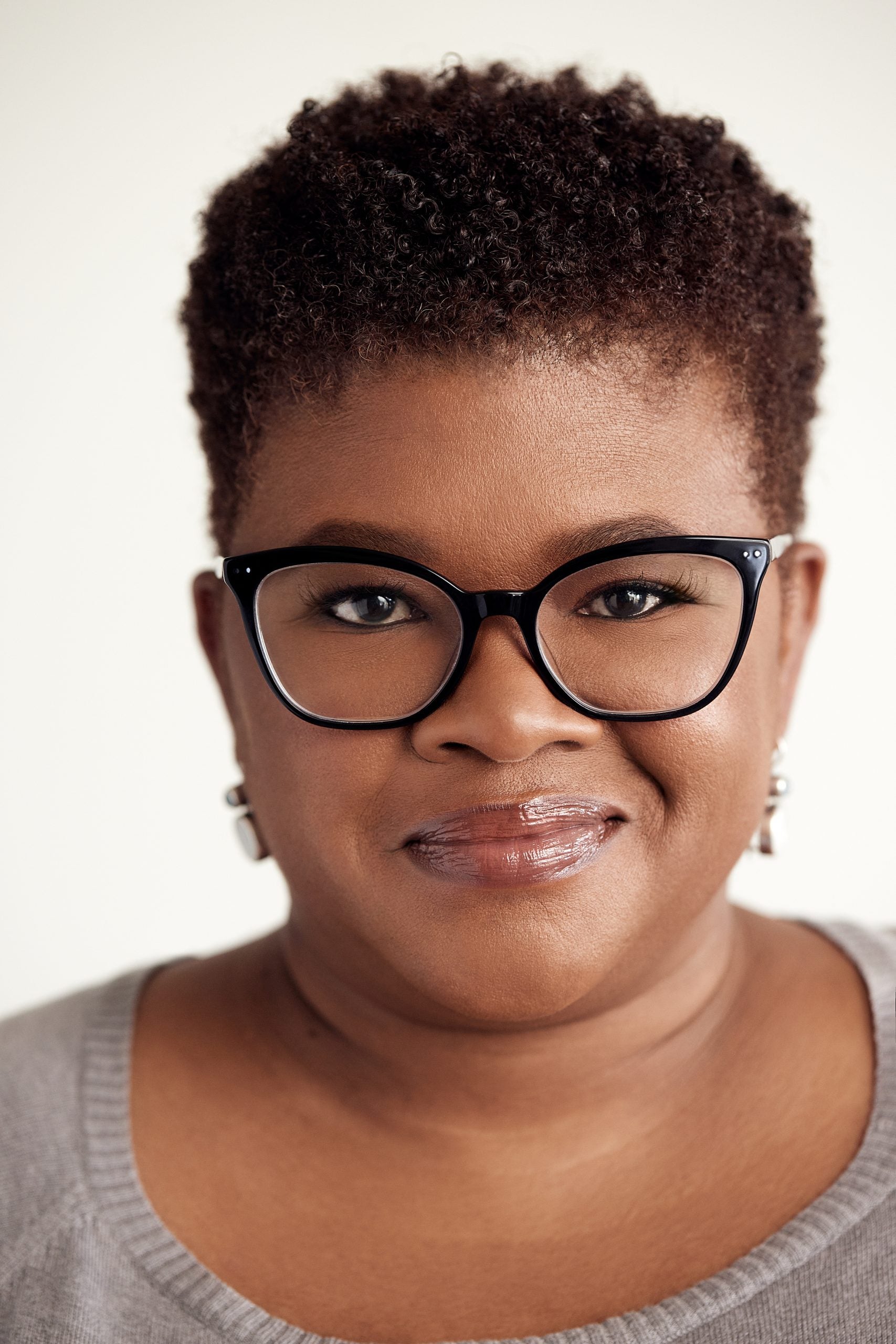
TL: Yeah, and I would add to that, the beautiful thing about partnering with Netflix is that it will be seen worldwide. And the worldwide message would be that we are bigger and greater than any border, than the differences of language, than even the differences of culture, that within the specificity and richness of our individual cultures, there is something that is universal. And if you lean into that and if you’re curious to look over the fence to see what your neighbor’s about and they’re curious enough to look back and see what you’re about, that everyone’s life is expanded because of that and there’s greater love and there’s greater connection.